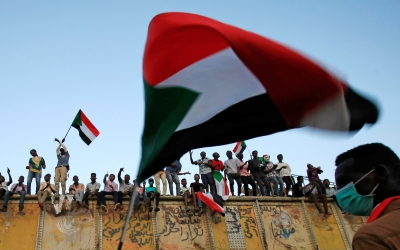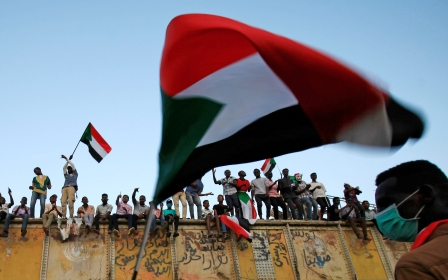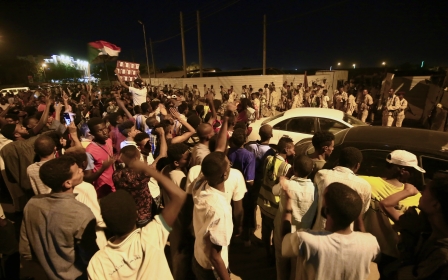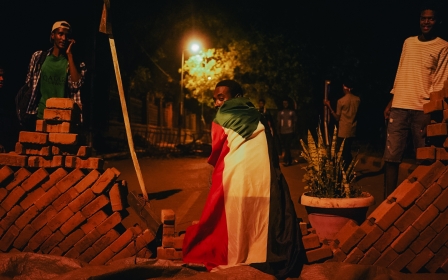Saudi Arabia deposits $250m into Sudan's central bank
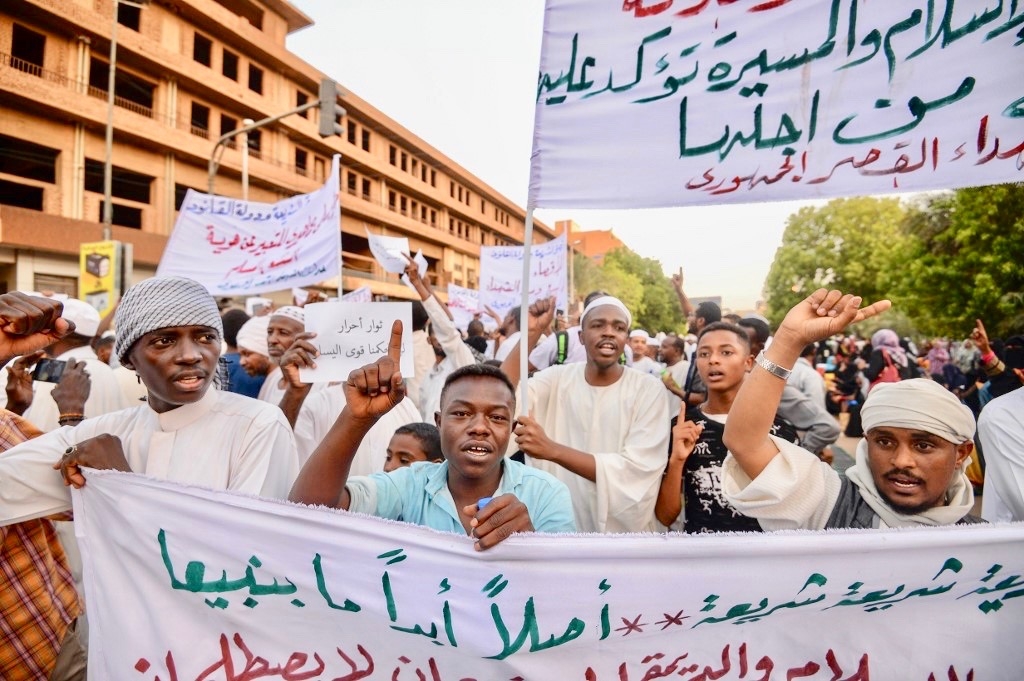
Saudi Arabia has said that it has deposited $250 million into Sudan's central bank to support the country following the overthrow of Omar al Bashir.
The Saudi finance ministry said it had "deposited 937.5 million Saudi riyals into the central bank of Sudan."
In April, Saudi Arabia and the United Arab Emirates announced three billion dollars (2.7 billion euros) in financial aid for Sudan.
"$500 million has been provided by both countries... to strengthen its financial position," the kingdom's finance ministry said.
In April, the UAE said it was depositing $250 million in Sudan's central bank.
The oil-rich Gulf states pledged to inject $500 million into Sudan's central bank and $2.5 billion to help provide food, medicine and petroleum products, the official Saudi Press Agency (SPA) said last month.
It said the move was aimed at shoring up the Sudanese pound.
Sudanese protestors who spoke to Middle East Eye argued that aid should come without strings attached.
"We are not part of any regional alliance, and we are happy to receive aid from any country if it's unconditional and unrelated to any long-term or short-term political commitments," said Amjed Farid, a spokesman for the Sudanese Professionals Association, which has organised the protests and a leading force in the negotiations with the military council for a transitional joint military and civilian authority.
"We are not willing to be part of any regional dynamics," he said. "We are looking for a Sudanese process, and we think this is the only way."
In recent years Sudan has been hit by an acute lack of US dollars, a key factor behind the nationwide protests that first erupted in December and led to the toppling of Bashir by the army last month.
Sudan plays a key role in the regional interests of Saudi Arabia and its allies, siding with Riyadh against Shia Iran and providing troops in the Saudi-led coalition fighting in Yemen's war.
Both Gulf nations have voiced backing for Sudan's military rulers, who are facing calls from protesters to cede power to a civilian transitional government.
The Sudanese currency had plunged even after the United States lifted its 20-year-old trade embargo on the country in October 2017.
Expectations that the end of US sanctions would bring an economic recovery failed to materialise, putting pressure on the pound.
The country's economic crisis has deepened since the secession of South Sudan in 2011 that took away the bulk of oil earnings.
Middle East Eye delivers independent and unrivalled coverage and analysis of the Middle East, North Africa and beyond. To learn more about republishing this content and the associated fees, please fill out this form. More about MEE can be found here.


